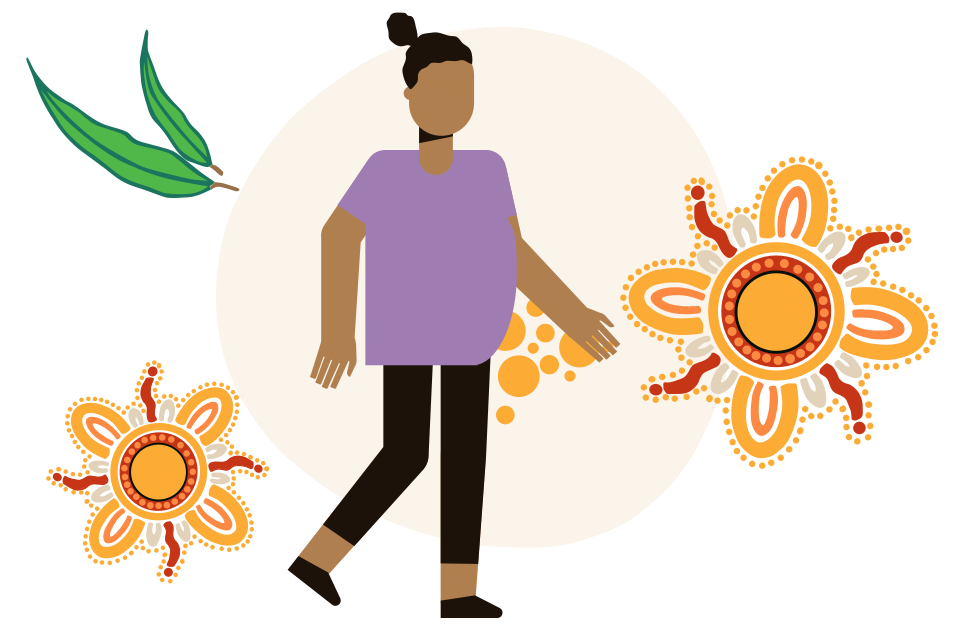How smoking and vaping affect your baby
The umbilical cord is your baby’s lifeline. Oxygen and nutrients flow through this cord and pass through to your baby, allowing baby to grow. Chemicals in smokes and vapes – including nicotine - also pass through the umbilical cord to baby:
- Smoking and nicotine increases the risk of baby being premature. Smoking increases the risk of still birth, and sudden infant death syndrome (SIDS).
- Smoking also affects baby’s lung and brain development.
- Smoking affects how the placenta forms and reduces the oxygen and nutrients crossing the placenta to baby.
- Babies whose mothers vape during pregnancy are more likely to be born underweight. This is called “small for gestational age”.
Other known risks of smoking while pregnant:
- Miscarriage
- Complications during birth
- Baby being born with a cleft lip
- Increased health problems, weaker immune system and baby having weaker lungs
- Baby being overweight or obese in childhood.
Breastfeeding
Some of the nicotine and other chemicals in smokes and vapes are passed from mum to bubs through breast milk. If you are having trouble giving up smoking or vaping, speak with your doctor, your Aboriginal maternal health worker or TIS worker, and our AQL counsellors for support. And try not to smoke or vape just before or during feeds.
The benefits of quitting for you and your bub
There are many benefits of quitting for you and your baby. Quitting early on in pregnancy is best but quitting at any time gives your baby a better chance of a healthy start.
If you quit smoking before or during your first three months of pregnancy:
- you reduce the risk of miscarriage
- you reduce your risk of complications during the birth and have a better chance of a safe labour and birth for you and baby
- you lower the risk that baby will be born too early
- you reduce the risk of your baby being born 'small for gestational age'
- you reduce the risk of the baby suffering illness during their early years and of the baby dying at, or soon after, birth.
Stopping smoking at any time allows oxygen to reach your baby more easily.
Quitting vaping means you're no longer exposed to the harmful chemicals in vapes that can affect your baby.
Remember, quitting at any stage of pregnancy gives your baby a better chance of a healthy start.

“It was always in the back of my mind but I never had an urge to do it, and then when I found out I was pregnant I was like, right, gotta do this now.”
Alicia, proud Aboriginal Woman
Tips for giving up smoking or vaping during pregnancy
Giving up the smokes or vapes while pregnant can feel overwhelming but you don’t have to do it alone – there is lots of support in community!
- Support from your AQL counsellor plus advice from your Aboriginal maternal health worker, TIS worker and doctor is the most effective way to quit.
- If you’re having trouble stopping smoking, using nicotine replacement therapy (NRT) is an option but it's important to discuss the risks and benefits with your doctor. Not all types of NRT are suitable when pregnant.
- Gentle exercise such as swimming, walking and supervised yoga can help your body adjust to being without smokes or vapes.
- If your partner or other mob in your household smoke or vape, encourage them to consider quitting or to only smoke or vape outside (and away from you).
How AQL can support you
Our deadly AQL counsellors can help you through the quitting journey. Our focus is on the health of you and baby. We have AQL counsellors who can yarn about Women’s business.
AQL counsellors will work alongside your doctor and Aboriginal maternal health or TIS worker to provide the Circle of Care approach. Circle of Care means everyone will work together to ensure the best possible outcome for you and baby throughout your pregnancy and quit journey.
AQL counsellors will:
- help you make a tailored quit plan
- offer advice on how to tackle triggers, cravings and withdrawals
- help to keep up your motivation to quit and stay quit
- work with your doctor and Aboriginal maternal health or TIS worker to make sure you’re getting all the support and care you need.
Please note, this information is for general use only. Please consult your health professional for further advice.
If you would like to provide feedback, please contact quit@cancervic.org.au
Last updated February 2024
